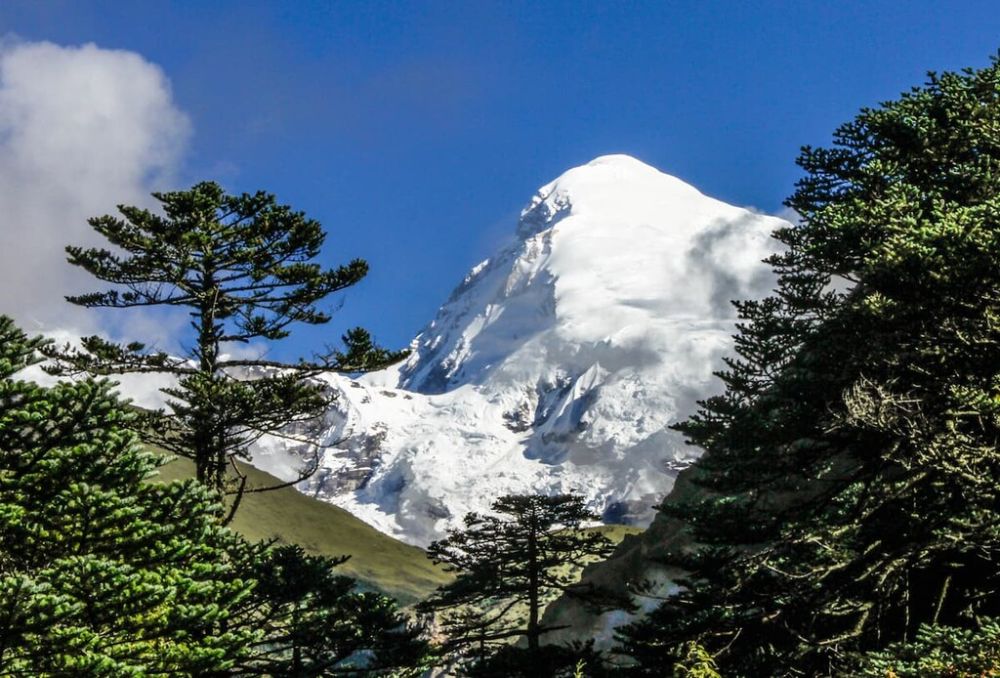

Jigme Dorji National Park, named after the late Jigme Dorji Wangchuck—one of Bhutan’s revered kings—is a sanctuary that epitomizes the natural beauty and cultural richness of Bhutan. Established in 1974 and sprawling over an area of 4,349 square kilometers, it is the second-largest national park in Bhutan and a crucial segment of the Bhutanese heritage.
The history of tourism in Jigme Dorji National Park is relatively young, just like the tourism industry in Bhutan itself. Bhutan carefully opened its doors to tourists in 1974 in a controlled manner to preserve its unique culture and pristine environment. Following the commencement of tourism, the national park became an attractive destination for those seeking trekking adventures and wildlife encounters, though always within the constraints of sustainable visitor numbers.
Since then, the park has seen a slowly increasing number of tourists who come to explore its rich biodiversity, including endemic species like the Takin, Bhutan's national animal. The park also provides habitat for other rare animals such as snow leopards, blue sheep, red pandas, and the Himalayan black bear.
Conservation efforts in the park have been pivotal, focusing on not only protecting flora and fauna but also the traditional lifestyle of the inhabitants. The park management works closely with local communities to uphold the conservation laws while ensuring that tourism benefits the livelihoods of the Bhutanese people living within and around the park. The park includes several culturally significant sites, including the sacred Mount Jomolhari, and Gasa Hot Springs known for its medicinal properties.
In recent years, ecotourism has become the latest trend in Bhutan which directly impacts Jigme Dorji National Park's tourism. Visitors are looking for authentic experiences that allow them to connect with nature and learn about the local culture. Experiential travel, including village homestays, traditional Bhutanese cuisine tastings, and participation in conservation activities, are gaining popularity.
Another emerging trend is the increasing interest in spiritual and wellness tourism. Jigme Dorji National Park offers serene landscapes and spiritual sites, making it a perfect destination for those seeking peace, meditation, and a retreat away from the chaos of modern life. Yoga retreats and meditation sessions in the lap of the Himalayas are becoming sought-after experiences for many tourists.
As Bhutan continues to advocate for High Value, Low Impact tourism, Jigme Dorji National Park positions itself as a prime example of this policy. Visitors are not only mesmerized by the park’s majestic landscapes and biodiversity but also learn the importance of living harmoniously with nature, which is at the core of Bhutanese philosophy.
With an ever-growing recognition of the need for sustainable travel, Jigme Dorji National Park will undoubtedly continue to be a beacon of conservation and cultural preservation, setting an example for destinations worldwide.